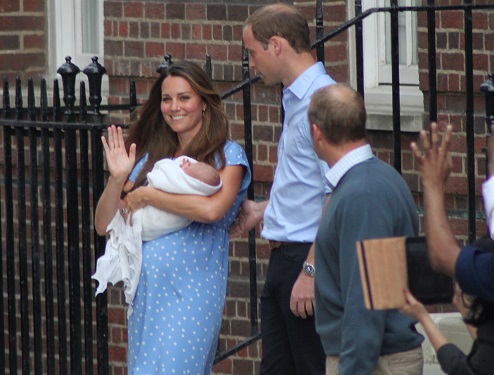
As Americans enjoyed a long Labor Day weekend, Prince William and Princess Kate announced they will soon welcome their third child into the world. Aside from its historical importance for the lineage of the House of Windsor, their pregnancy provides a hopeful contrast with much of Europe facing the economic consequences of a demographically barren and graying future.
Jon Miltimore, senior editor at Intellectual Takeout, addresses the aging face of Europe in a new essay for Religion & Liberty Transatlantic. He writes:
Are Europe’s demographics truly this apocalyptic?
A third child would put William and Kate at double the average birthrate in the European Union, which stood at 1.55 in 2013. Government statistics show that in the United Kingdom, one of the most fertile nations in Europe, just 14 percent of families have three or more children.
That is well below replacement level of 2.1 children per woman nationally.
Demographic decline leads to a host of intertwined economic maladies. Fewer younger workers decreases productivity precisely as state-funded pensions strain national budgets, among other dangers raised in the article. Miltimore got exclusive comments from Meg Tuszynski, an economist and researcher at the O’Neil Center at Southern Methodist University, on the cascade of fiscal troubles that constitute what economists call the “grey peril.” And as he makes clear, the grey peril is stalking Europe from the Andes to the Urals.
Rather than merely assess the results, Miltimore probes the inner psychological and cultural reasons behind Europeans’ decision not to have more children. Along the way, he shares insights from Tom Wolfe and the German philosopher Rüdiger Safranski on seeing children as a burden, and how that mindset transforms a generation’s views of their nations’ financial environment, stability, even its survival.
Thus, the importance of a young, popular, dynamic couple having a third child in the way the royals must endure everything – in public. The British social scientist Michael Billig, who has written extensively on the monarchy’s impact on culture, once observed:
Over and above being a symbol of privilege and nationhood, the Royal Family overtly represents the family. In [journalist Walter] Bagehot’s phrase, it is the family on the throne. … As families talk about the Royal Family, they will be talking about family; and as they talk about family, so will they be talking about themselves.
Today, their eldest child, Prince George, had his first day at school, prompting families across the UK to share their own stories of school days. If the royal family’s example causes more young people to consider having a third child – or a second – their influence will be a most salutary one.
You can read Jon Miltimore’s full article here.
(Photo credit: Christopher Neve. This photo has been cropped. CC BY-SA 2.0.)

